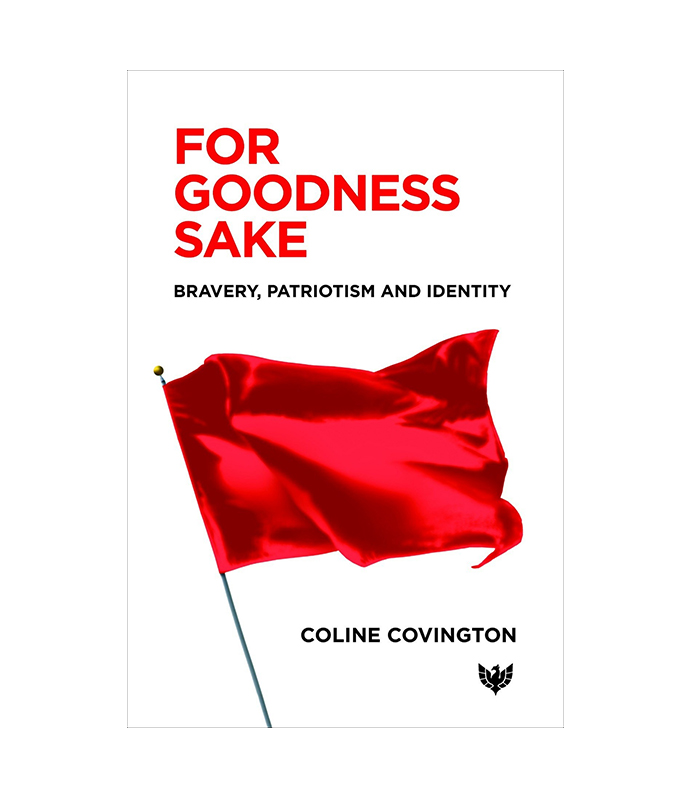In the midst of atrocities, there is the silent presence of the brave individuals who act and stand apart from the crowd, who risk their own lives by rescuing others and, in other ways, by voicing their dissent. The actions of these exceptional individuals raise questions as to why they were able to do what they did and why other people don’t. But if we look closer at the histories of these individuals, what we discover is that they may not be as exceptional as we think and that bravery takes different forms in different contexts. Clinical material of a young male patient, a war hero struggling to separate from his refugee parents, illustrates the role of the ego ideal, insofar as it is consonant with innate morality, as the primary factor motivating acts of bravery. The compulsion to act bravely is largely ascribed to conscience, that is, being at one with oneself. Those who act bravely do not feel they have a choice because not to act is experienced as a betrayal of self. As such, bravery is a fundamental assertion not only of the self but of a moral order necessary to sustain the self.
As well as bravery, Coline Covington investigates the concept of patriotism and what it truly means – a vital discussion for these turbulent times – and how each of us discovers our identity, as individuals but also within groups. Dr Covington is well placed to explore these questions with her BA in Political Philosophy from Princeton, her Diploma in Criminology from Cambridge, and her PhD in Sociology from LSE. Add to these her analytic training and fellowship of International Dialogue Initiative (IDI), and you are left with a thoughtful, perceptive, and sensitive discussion that is a joy to read.





 Coline Covington, PhD, BPC received her BA in Political Philosophy from Princeton and then moved to the UK where she received her Diploma in Criminology from Cambridge and her PhD in Sociology from LSE. She worked for nearly ten years as a consultant with criminal justice agencies throughout England and set up the first UK mediation project between victims and juvenile offenders with the Metropolitan Police in London.
Coline Covington, PhD, BPC received her BA in Political Philosophy from Princeton and then moved to the UK where she received her Diploma in Criminology from Cambridge and her PhD in Sociology from LSE. She worked for nearly ten years as a consultant with criminal justice agencies throughout England and set up the first UK mediation project between victims and juvenile offenders with the Metropolitan Police in London.
Chris Patten, Chancellor of the University of Oxford –
‘Coline Covington brings wisdom and fresh insights into a study of the question of identity, which has become, with the retreat of ideological politics, one of the most important factors in international affairs. She is fascinating in her discussion of the relationships between nationalism and patriotism and of courage – both physical and mental – with the wider question of identity. This is a relevant and thought-provoking book which looks beyond the familiar arguments about nation states and globalization.’
Theodore J. Jacobs, M.D., Clinical Professor of Psychiatry (Emeritus), Albert Einstein College of Medicine; training and supervising analyst, the New York Psychoanalytic Institute and the Institute for Psychoanalysis –
‘This is one of the most important books in the field of psychoanalytic studies to appear in many years. Bringing her penetrating insights and extensive clinical experience to bear on such fascinating topics as bravery and heroism, identity, belief systems, dissent, and the capacity for change, Coline Covington has explored the psychological roots of these important, but much neglected, issues in a way that is both illuminating and novel. Focusing on the strengths and resources of the human personality as well as its limitations, she has written a remarkable book, one that breaks new ground and presents us with a gift that we will long cherish.’
Caroline Moorehead, OBE, historian and biographer; author of ‘The Resistance Quartet’ book series and ‘Human Cargo: A Journey Among Refugees’ –
‘A fascinating and scholarly exploration of what it is to be alive in a world riven by moral and political disorder, and of how we navigate between our own natures and the dilemmas and pressures we are confronted with. Drawing on a wide range of literary, historical, and clinical sources, and on topics that range from nationalism to immigration, heroism to inequality, Coline Covington has written an important book on the steps we take to hold on to our own identity and sanity. For Goodness Sake is a celebration of the nature of courage.’
Eva Hoffman, author of ‘After Such Knowledge’, ‘Exit Into History’, and ‘Human Time’; Visiting Professor, University College London European Institute –
‘In this powerful and subtle study, Coline Covington delves deeply into the individual and collective roots of bravery, and distinguishes between courage and recklessness, cowardice and self-preservation. Combining psychoanalytic insight and philosophical analysis, she eloquently explores our profound need for moral meaning, and for living in societies which permit its expression. A book for our time, reminding us of timeless values which we ignore at our peril.’
Amazon review: Douglas B., March 2021 –
5/5 stars: Who are the brave?
This book is deeply impressive for its quality of writing; scholarship/erudition; multi-disciplinary method; and such a hot set of topics for our times. I hope many university teachers of history and international relations get to hear about it and put it on their reading lists.
Amazon review: Charles Bland, November 2020 –
5/5 stars: A vital book for our time
Using the theme of bravery, Dr Covington explores issues of identity, citizenship, patriotism and dissent. She draws on a wide range of individual experience, illuminated by profound psychological insight, to understand the source and meaning of acts of courage. In a world where ideologies are under challenge, populism is on the rise and social media are destabilising our sense of truth, this book is an essential analysis of how individuals build a sense of self and a morally based relationship to the communities and societies in which they live.
Amazon review: Paul Rock, November 2020 –
5/5 stars: A profound and searching study of some of the most pressing contemporary moral dilemmas
Coline Covington grew up in the United States where she studied political philosophy at Princeton University before settling in England where she read criminology at Cambridge University and sociology at the LSE, and then trained as a psychoanalyst. Not many are as able to see the world in such broad, comparative perspective. Hers has in effect been a long preparation for a quest to understand a cluster of critical ethical and existential problems, and For Goodness Sake is the second book, following Everyday Evils, to examine the deep connections between individual pathology and large group behaviour, especially focusing on the psychological roots of our morality. In it, she explores the interlocking issues posed by such matters as identity, loyalty, bravery, patriotism, dissent and fidelity to the self, and she is mindful always of how contradictory they may sometimes prove to be. Good citizenship may entail the right to dissent. A home country that is fled may be regarded with more affection than the one in which the exile lives. A love of nation may require the death of the patriot. For Goodness Sake is written with authority and clarity, consistently illuminating in what it says, and it marks a great advance in a difficult area of moral philosophy.
Jane Cooper, former senior counsellor at the University of Cambridge – BACP Therapy Today May 2021 –
‘In this thought-provoking book, Coline Covington brings together her expertise as a fellow of Vamik Volkan’s International Dialogue Initiative with her considerable experience of working as an analyst. Using compassionate and exquisitely written case studies, she moves seamlessly from the personal to the political and vice versa. […] the book’s argument about the psychic consequences of being complicit in acts of harm is very prescient. I thoroughly recommend it.’
Nigel Williams, British Journal of Psychotherapy, 39:1 (2023) –
‘This is a highly textured and carefully thought through piece of writing that examines the nature of bravery as illustrated partly by clinical work and partly by cultural commentary informed by both psychoanalysis and the social sciences. Writing the book is itself brave in its attempt to understand the contemporary world holistically through the lens of what it means to act ethically and take responsibility.’